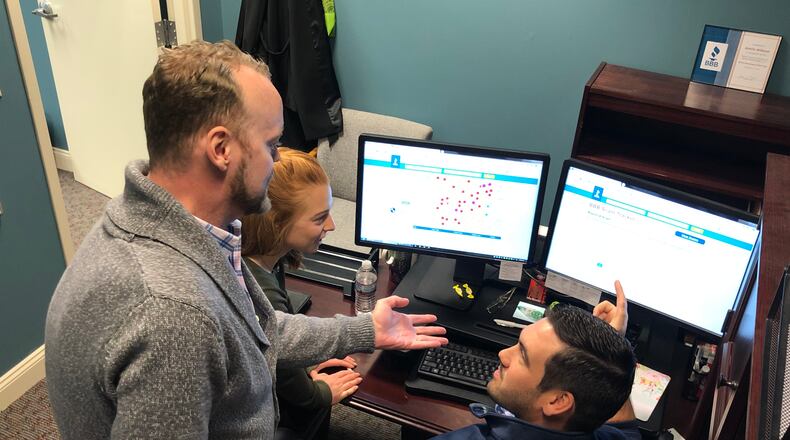Here are ten ways to protect yourself during the holiday shopping season:
»RELATED: Retail vacancies reach new highs as holiday shopping approaches
1. Use credit cards instead of debit
If the debit card is compromised it can wipe a bank account clean, but when a credit card gets hacked, lenders are more likely to refund the consumer.
“The credit card companies won’t insure your purchase if you use a debit card, so rule number one is to always use a credit card. Since its the holiday, maybe try to get just a shopping credit card, a separate card with a lower balance,” said Shawn Waldman, founder and CEO of Secure Cyber Defense. “This is the time of year that you’ve got to be really careful about your charges and watching to make sure there are no fraudulent charges.”
2. Check for broken or loose pieces on card readers
Broken and loose pieces on card readers can sometimes be a hint that the reader has been tampered with and information is being relayed to scammers.
Using gas pumps close to the building and ATMs in well-lit busy areas is best, said Miami Valley Better Business Bureau president John North. The ones in darker areas further away from employees are the ones most likely to be tampered with.
3. Use unique passwords on all accounts
Using unique passwords for all sites and accounts that have sensitive information will help one breached account from leading to many, said Dave Salisbury, a cybersecurity professor at the University of Dayton.
When accounts are breached, hackers will often try to use the username and password combination on other sites.
Salisbury recommends using the lyrics to favorite songs as passwords, swapping an “a” for an @ or an “i” for a 1.
»PHOTOS: Luxury home with Yankee Trace Golf Course view on market
4. Check for the “s” on “https” web site addresses, and a lock sign, before entering information on websites
Never give any information over a website that doesn’t contain the letters ‘https’ in the address bar as well as the padlock symbol, said Natalie Dunlevey, president of National Processing Solutions. Sites without those items are not secure.
5. Don’t take online quizzes/games that request information that are common security questions
The quizzes themselves may be scams, trying to find the answers to security questions, Salisbury said.
6. Freeze your credit
While it may be annoying to unfreeze credit when buying a house or getting a new credit card, it is one of the safest things to do to protect credit after a social security number has been compromised, North said.
7. Check emails for red flags
Scam emails will pick up during the holidays, many experts said. Shoppers should check links and make sure they go to a legitimate website by hovering over a URL before clicking, make sure the sender’s address is a real company and check for grammar errors and typos that sometimes are signs of a scam
»RELATED: JCPenney’s new store format includes fitness classes, smart dressing rooms
9. Beware of urgency in calls
Urgency in calls often signals fraud, where scammers attempt to convince consumers something bad will happen if they don’t immediately take some sort of action that gives up personal or financial information, Salisbury said. The IRS will not call or email somebody for personal information.
10. Check gift cards
It’s best to buy directly from a retailer or behind a counter rather than from a kiosk in a store’s aisles to be sure they haven’t been tampered with.
“There’s a little scratch off on the back. You have to make sure that that is intact because if it has been scratched off somebody has put the information into a program and as soon as that gets swiped at the checkout line, they have access to that money,” Dunlevey said.
FIVE FAST READS
• Popular Dayton sports complex makes a comeback following tornado
• Needmore Kroger closing comes at ‘vulnerable time’ following tornadoes
• Average airfare at Dayton airport among top five most expensive
• Here’s what to expect with your home heating prices this winter
About the Author
